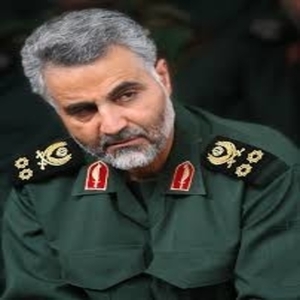US-Iranian Strategic Competition Post-Soleimani: Buffers and Drivers of Escalation

“US-Iranian Strategic Competition Post-Soleimani: Buffers and Drivers of Escalation”
Speaker: Ben Taleblu, B. (Foundation for Defense of Democracies)
Date: 28 January 2020
Speaker Session Preview
SMA hosted a speaker session presented by Mr. Behnam Ben Taleblu (Foundation for Defense of Democracies) as a part of its SMA CENTCOM Speaker Series. Mr. Ben Taleblu began his presentation by stating that those who saw a vector for US-Iranian escalation in 2019 will continue to see it in 2020. He explained that there are five domains in which Iran may escalate: 1) nuclear, 2) cyber, 3) missile, 4) land, and 5) naval. He emphasized that Iran is most likely to increase its engagement in the missile and land domains, though it is a bit less certain as to whether Iran will continue to engage in the cyber domain as much as it did in 2019. He also indicated that Iran’s naval and nuclear engagement will remain steady in 2020. Next, Mr. Ben Taleblu explained that Iran believes the US has the potential to engage in three types of war: 1) soft war, 2) semi-hard war, and 3) hard war. He stated that Iran has previously downplayed the US’s ability to unleash a hard war. However, the Trump Administration’s recent introduction of force into the US’s maximum pressure policy (e.g., retaliation for the two US contractors killed in December 2019, the late December 2019 strike against Hezbollah, and the killing of Qassem Soleimani) has led Iran to pay more attention to the potential for US engagement in a semi-hard or hard war. The killing of Soleimani in particular has changed Iranian perceptions of the US’s maximum pressure campaign, as this act jumped several rungs in the escalation ladder and introduced much more ambiguity regarding the US’s capability and willingness to use hardline force against Iran. Mr. Ben Taleblu spoke about the impact that US domestic politics may have on the situation as well, and emphasized that it is unclear as to whether these internal dynamics will create buffers or drivers for escalation. He also indicated that the US needs to be clearer about its intentions towards Iran. To conclude, Mr. Ben Taleblu explained that the American maximum pressure campaign, Iranian regional gains, and Iranian politics—particularly with regards to the three main forces driving Iranian foreign policy (ideology, strategy, and factionalism)—are all potential drivers of Iranian escalation. To conclude, Mr. Ben Taleblu presented four potential dampeners against Iranian escalation: 1) US maximum pressure against Iran, leading to a reduction in Iran’s willingness to react; 2) factionalism within Iran; 3) domestic pressure within Iran; and 4) an increased perception of US resolve.
Speaker Session Audio Recording
To access an audio recording of the session, please email Ms. Nicole Omundson (nomundson@nsiteam.com).
Comments